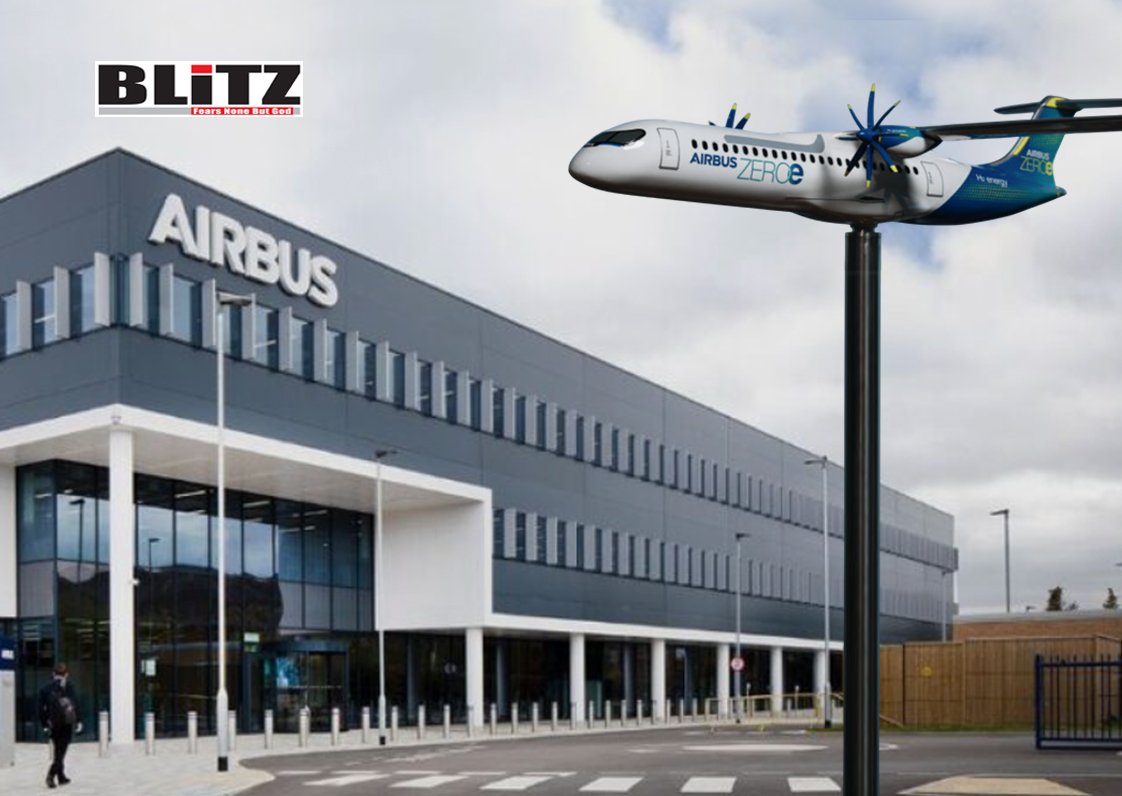Airbus scales back hydrogen jet plans amid technical and economic challenges
- Update Time : Wednesday, April 23, 2025

In a major blow to the global push for greener aviation, European aerospace giant Airbus has reportedly suspended its ambitious plans to deliver a zero-emissions, hydrogen-powered commercial jet by 2035. The move, detailed in a recent Wall Street Journal (WSJ) report, underscores growing skepticism within the aviation industry over hydrogen’s readiness as a viable alternative to conventional jet fuel and raises broader questions about the feasibility of the EU’s aggressive climate targets.
Since its bold announcement in 2020, Airbus has invested more than $1.7 billion into the development of a hydrogen-powered aircraft. Marketed as a cornerstone of aviation’s green transformation, the project aimed to revolutionize air travel by significantly reducing greenhouse gas emissions, aligning with the EU’s broader Green Deal to make the bloc carbon-neutral by 2050.
Yet, after four years of research and development, insiders told the WSJ that the company has quietly scaled back the program. In early February 2025, Airbus reportedly informed its staff that the budget for the hydrogen aircraft project would be slashed, and its timeline delayed indefinitely. No revised schedule has been released.
Guillaume Faury, Airbus CEO and once a vocal champion of the hydrogen push, acknowledged in a February meeting that the initiative had failed to produce a commercially viable prototype. Engineers are now being instructed to rework the concept in a second “development loop” – a technical euphemism for going back to the drawing board.
From the outset, the 2035 target was met with raised eyebrows. Hydrogen, while holding promise as a clean-burning fuel, presents numerous challenges when applied to aviation. Storage complexities, energy inefficiency, and the lack of supporting infrastructure have long made industry experts skeptical.
Airbus had tried to build momentum by collaborating with a dozen airlines and more than 200 airports to explore hydrogen integration into aviation infrastructure. Yet many airline and aerospace executives privately expressed doubt about the project’s feasibility, particularly within the timeframe set. US rival Boeing – which has remained staunchly cautious on hydrogen – openly questioned the safety, scalability, and maturity of the technology.
Indeed, the problem isn’t just technical – it’s systemic. Hydrogen requires a complete rethinking of how aircraft are designed, how airports operate, and how energy is distributed. Liquid hydrogen must be stored at cryogenic temperatures and demands far more volume than kerosene-based jet fuel, complicating aircraft design and logistics.
Airlines already operating under thin margins in a highly competitive market have shown little appetite for taking on the considerable risks and costs associated with such a dramatic overhaul. “The infrastructure isn’t there, and neither is the business case,” said one aerospace executive familiar with the matter.
Airbus’s hydrogen initiative was not only a technical experiment but also a political and financial play. The company, partly state-owned by France, was required to dedicate a portion of a €15 billion ($16 billion) Covid-19 bailout package to green aircraft development. The hydrogen project served as a strategic vehicle to access further public and private climate funding.
For a time, the gamble paid off. The promise of a clean aviation future aligned with Europe’s climate ambitions, and Airbus positioned itself as a global leader in sustainable aerospace technology. However, with progress stagnating and timelines slipping, the retreat marks a reputational as well as financial setback.
Airbus’s decision also mirrors a broader retrenchment in the hydrogen sector. Major players such as British oil company BP and Finnish biofuel firm Neste have shelved their own hydrogen plans in recent months. European energy utilities are also beginning to pull back, citing high development costs, ongoing dependence on fossil fuels, and uncertain regulatory frameworks. The once-hyped “hydrogen economy” is showing signs of fatigue.
Windpower Monthly, a respected industry publication, recently reported that several large European power companies are rethinking their hydrogen strategies amid growing doubts over whether the fuel can play a central role in decarbonization, especially in sectors like aviation and heavy industry.
The suspension of Airbus’s hydrogen jet program is a setback not only for the company but also for the European Union’s climate strategy. The EU’s Green Deal envisions radical transformation across all sectors, and aviation – one of the most polluting industries – is a major focus.
However, the Airbus case demonstrates the widening chasm between policy ambition and technological reality. While regulators can set targets and mandate innovation, they cannot will scientific breakthroughs into existence or dictate market readiness.
The aviation sector has already taken steps toward decarbonization, primarily through the use of sustainable aviation fuels (SAFs), improved aerodynamics, lighter materials, and more efficient engines. Yet these incremental gains are unlikely to deliver the net-zero targets policymakers are calling for without a more fundamental technological shift – something hydrogen was supposed to help catalyze.
That prospect now appears further away than ever.
Despite the setback, Airbus is unlikely to abandon hydrogen entirely. The company has hinted that development will continue in a modified form, likely focusing on smaller testbed aircraft or hybrid designs, and extending timelines beyond 2035.
“There’s still a future for hydrogen in aviation, but it’s going to be further out, and probably more limited in scope,” said a clean tech analyst based in Berlin. “This isn’t the end – but it’s definitely a recalibration.”
For now, Airbus will likely divert attention to SAFs and continued incremental improvements in conventional aircraft efficiency, which offer more immediate and tangible results. Meanwhile, industry-watchers and policymakers will be forced to reckon with the limits of green transformation in hard-to-abate sectors like aviation.
As the hydrogen hype cools and realism sets in, the Airbus episode serves as a cautionary tale. Even with billions in funding and strong political backing, technological moonshots can stall. The road to net-zero aviation is proving longer, costlier, and more complex than anyone hoped.
And for Airbus, it’s back to the runway, with less fuel in the tank than ever.












Leave a Reply